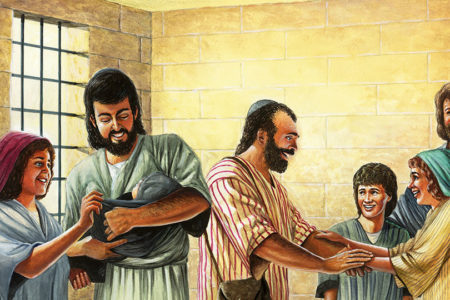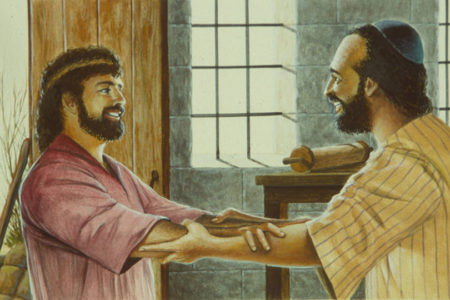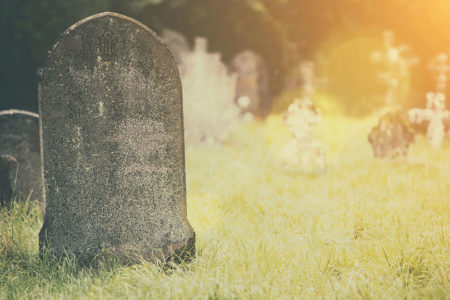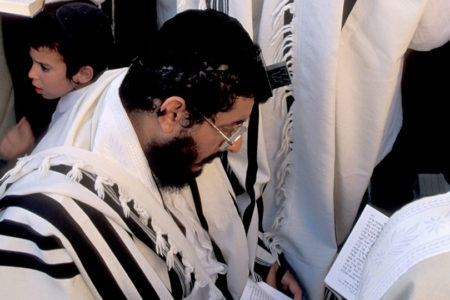The Day of the Lord 1 Thessalonians 5:1-11
The major subject of 1 Thessalonians 5:1–11 is the future Day of the Lord, which refers to God’s future intervention into world events to accomplish His purpose in history—to glorify Himself by demonstrating the fact that He alone is the sovereign God. In order to accomplish this purpose, God has determined to have His day in the end times of world history.
In light of this determination, the Day of the Lord will have at least two phases. The first will be a period of judgment, as God intervenes to destroy the dominion of Satan and rebellious man over the world system and thereby ends their day in the world. This phase will be characterized by darkness and an outpouring of God’s wrath (Joel 2:1–2; Amos 5:18–20; Zeph. 1:14–15).
The second phase will be a period of divine dominion, as God restores and exercises His theocratic kingdom rule over the world system through Jesus Christ (Zech. 14:1–9; Rev. 19:11–20:4). This phase will be characterized by light and an outpouring of God’s blessing (Isa. 2:13; 11:1–9; 30:23–26; 60; Zech 14:1, 7–11, 20–21; Mt. 19:28; Acts 3:19–21). It would be strange for the God who is light (1 Jn. 1:5) to have His day consist totally of darkness with no period of light, especially since the present day of Satan and rebellious man is characterized by a rule of darkness (Eph. 6:12; Col. 1:13).
The Introduction of a New Subject
Paul’s discussion of the Day of the Lord in 1 Thessalonians 5:1–11 involved the introduction of a new and therefore different subject from that of the Rapture of the Church at the end of chapter 4. Two things indicate this change of subject. First, Paul began verse 1 with a combination of two Greek words back to back. Whenever Paul placed this combination at the beginning of a statement, he used it to introduce a new subject.
Second, the Thessalonians already had a perfect knowledge concerning the future Day of the Lord before Paul wrote 1 Thessalonians to them (v. 2), but they were ignorant concerning the Rapture of the Church before receiving this letter (4:13–18). This indicates that the Rapture was not part of the subject of the Day of the Lord and therefore will be a different event from the Day of the Lord. The Day of the Lord will not include the Rapture.
This difference is significant for two reasons. First, the Day of the Lord will include the Second Coming of Christ (Joel 3:9–17; Zech. 12; 14:1–9), but since that day will not include the Rapture, the Rapture must be a separate event from the Second Coming. Second, since the Rapture is not part of the Day of the Lord, there must be a period of transition between the Rapture and the beginning of the Day of the Lord.
The Beginning of the Day of the Lord
In describing how the Day of the Lord will come (vv. 2–3), Paul was dealing with the beginning of that future period. He described the beginning of the Day of the Lord in three graphic ways. First, it will come like a thief comes in the night—suddenly, unexpectedly, with no forewarning. Paul’s point was that the beginning of the Day of the Lord will have no forewarning or precursors, thus ruling out any of the seals of Revelation as a forewarning or precursor.
Second, the Day of the Lord will begin when the unsaved claim to have established a state of “Peace and safety” (v. 3). Just when they are convinced that they have finally reached the elusive goal that man for ages has dreamed of achieving through his own efforts, they will experience the opposite of what they are expecting. The Day of the Lord will break upon them with sudden destruction and catch them totally unprepared. Paul used an emphatic double negative to stress that the unsaved will be totally incapable of escaping the Day of the Lord judgment. This strong emphasis implies that the reason for their incapability is that God has appointed these unsaved to His Day of the Lord wrath.
Peace will be removed from the earth when the second seal is broken (Rev. 6:3–4), and Revelation 6–19 indicates that there will be no peace and safety for the unsaved from the time of the second seal through the Second Coming of Christ. For example, when the sixth seal is broken, the terrorized actions and cries of the unsaved will be the opposite of their conviction that they have obtained peace and safety (Rev. 6:12–17). In light of this and Paul’s teaching that the Day of the Lord will begin when the unsaved claim to have peace and safety, it can be concluded that the Day of the Lord must begin before the second seal is broken.
Third, Paul stated that the destruction at the beginning of the Day of the Lord will come just as suddenly as travail (lit., “the birth pang”) comes on a woman about to give birth. Paul used the singular form of “birth pang” and placed the definite article “the” before it. This, together with the emphasis upon the unexpected suddenness with which the Day of the Lord destruction will come, indicates that Paul was referring to the very first birth pang. It is a woman’s very first birth pang, not her later, hard labor birth pangs, which comes suddenly and unexpectedly. Thus, Paul was teaching that the Day of the Lord will begin with the very first birth pang.
Jesus spoke of “the beginning of sorrows” (lit., “the beginning of birth pangs”) (Mt. 24:5–8). Because the beginning of birth pangs must certainly include the very first birth pang, it can be concluded that the birth pang of Paul’s teaching will be the start of the birth pangs. Thus, both the Day of the Lord and the beginning of birth pangs will start at the same time as the birth pangs of Paul’s teaching. Therefore, the Day of the Lord will include the beginning of birth pangs referred to by Jesus in Matthew 24.
A careful study of the biblical concept of birth pangs demonstrates that the beginning of birth pangs will take place during the first half of the 70th week of Daniel 9 and that the later, severe birth pangs of hard labor will take place during the second half of the 70th week. Therefore, the Day of the Lord will include the first half of the 70th week of Daniel.
All three of Paul’s graphic descriptions of the beginning of the Day of the Lord point to the same conclusions. The Day of the Lord will start at the beginning of the 70th week of Daniel 9. The first phase of the Day of the Lord (the judgment phase of darkness and wrath) will cover the entire 70th week (including the beginning of birth pangs of the first half of the 70th week).
The Contrasting Divisions of the Human Race
Paul drew a sharp contrast between two distinct groups of humans—Church saints and the unsaved—through two means. First, he used a contrast of spheres (v. 4). The unsaved are “in” the sphere of darkness, which is ruled over by evil angelic beings (Eph. 6:12). Church saints have been removed from the sphere of darkness and are now in the sphere of light (Col. 1:13; 1 Pet. 2:9).
Second, Paul employed a contrast of natures (v. 5). The unsaved have a nature of darkness (they are “of” the night, “of” darkness). Church saints have a nature of light (they are “of” light, “of” the day).
The Significance of the Contrasting Divisions
In light of the two phases of the Day of the Lord (the first phase of judgment, which will be characterized by darkness and God’s wrath and which will cover the entire 70th week, and the second phase of divine rule, which will be characterized by light and God’s blessing and which will be present after the 70th week), it appears that Paul drew his sharp contrast between the unsaved and Church saints in order to communicate a significant truth. Because of their relationship to the sphere and nature of darkness, the unsaved will experience the darkness and wrath phase of the Day of the Lord, but not the light and divine blessing phase. By contrast, because of their relationship to the sphere and nature of light, Church saints will experience the light and divine blessing phase of the Day of the Lord, but not the darkness and wrath phase. Since the darkness and wrath phase will cover the entire 70th week, Church saints will be removed from earth before the 70th week begins.
That Paul was communicating the truth is indicated by several things. First, he used a purpose clause in the second half of verse 4 to make the following point: God will purposely remove Church saints from the sphere of darkness so that the Day of the Lord will not overtake them like a thief in the night. Since it is the first phase (the judgment phase) of the Day of the Lord that will come like a thief, it appears that Paul was saying that God will purposely remove Church saints from the sphere of darkness so that the phase of the Day of the Lord that will come like a thief in the night will not overtake them.
Second, Paul exhorted Church saints to put on “for an helmet, the hope of salvation” (v. 8). Since hope is always fixed upon something that has not yet been obtained but is expected to be obtained in the future, Paul was not referring to eternal salvation from the penalty of sin. His readers had already obtained that when they trusted Christ as Savior. Since the major subject in this context is the Day of the Lord, Paul must have been referring to future salvation or deliverance from the coming destruction and wrath of the Day of the Lord. Thus, Paul was exhorting Church saints to protect their minds with the hope (assurance) of being delivered from the Day of the Lord wrath.
Third, Paul gave the reason for this hope: God has not appointed Church saints to wrath (v. 9). Again, since the context is the Day of the Lord, Paul must have meant that God has not appointed Church saints to the Day of the Lord wrath. Instead, God has appointed them to obtain salvation from that wrath through Christ.
Christ died for Church saints so that they might live together with Him instead of experiencing the Day of the Lord wrath (v. 10). The language of verses 10 and 11 is so parallel to the Rapture language of 1 Thessalonians 4:16–18 that it appears that, through the Rapture, Church saints will be saved from the Day of the Lord wrath. They will be raptured before the Day of the Lord starts at the beginning of the 70th week.









You fail to mention that the Second Coming will not be a surprise, an unexpected event, since we know that it will come as Antichrist is marshaling his forces on the plains of Megiddo. The “battle” of Armageddon will not commence over a few moments; it will take days, possibly weeks, to gather all of the military might at his command. As new believers are watching this, they are anticipating that the Second Coming will be any day, any moment. It will not be an unpleasant surprise, as would be a thief in the night.
It seems to me that the only way “the day of the Lord”, which refers to God’s judgment on the world, can be an unexpected event is if that term encompasses the entire period from the Rapture to the Second Coming, and possibly even the Judgment of the Nations. At the Rapture, the Holy Spirit will relinquish His ministry of restraining evil, and so the very moment of the Rapture will begin a period of unrestrained evil that will last until the Second Coming, which will be immediately followed by the Judgment of the Nations, at which time God will wipe out the unbelievers from the face of the Earth, completing His judgment (for the time being).
My takeaway from all this is that the day of the Lord is the entire tribulation till the second coming. Verse 6 reminds God’s people to put on the armor of God and be watchful so that we are not caught up in the ways of the world ourselves and deceived by the “peace and safety”. I, personally, do not fully believe in “once saved, always saved”. There are too many references warning God’s people to hold tightly to their salvation and to not be deceived, because even some of the elect will be in the end times. I post this comment as I myself am studying and learning, so do not take it as one in authority. These are just my current thoughts.
Hi! I appreciate how Dr Reynolds showers explained first Thessalonians 5. I have never heard it explain this way. I still have a question though if this is true that the day of the Lord is talking about the second coming of Christ and if the church saints have been raptured before that happens, then why does he say in verse 6 that we should not sleep but watch and be sober. If we are already with Christ in heaven, why do we need to watch and be sober? I think I’m missing something here.